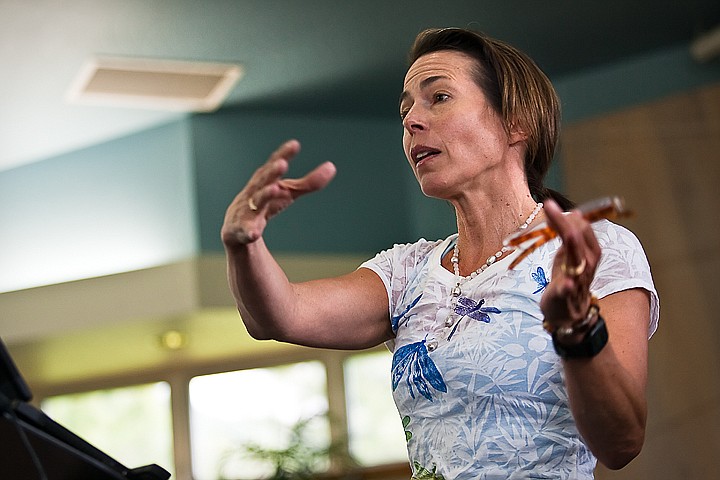Making choices for end of life
COEUR d'ALENE - A representative of a nonprofit organization focused on end-of-life care told an audience at Unity Church of North Idaho on Saturday that people need to talk to their doctors.
Kathryn Tucker, director of legal affairs for Compassion and Choices, recommended they speak with their doctors to make certain their wishes match with the services their doctors are comfortable providing.
"Patients are consumers, right?" said Tucker, of Ketchum.
Compassion and Choices is a national nonprofit public interest organization dedicated to improving end-of-life care and expanding and protecting the rights of the terminally ill. About 40 people attended Tucker's presentation.
Lisa Hyer, 68, of Hayden, was one.
Hyer said, "Why should other people be able to say who shouldn't have these choices?"
Hyer said Idaho should look at adopting legislation on end-of-life care similar to that of Oregon.
"It's been working great there," she said. Hyer has had several surgeries and is on kidney dialysis. She wants all options available, and said she finds language some use to describe some of those options as hurtful, referring to phrases like "assisted suicide."
"They just sound more harsh," Hyer said.
Tucker said people should establish for themselves a person who can make for them end-of-life decisions when they are incapacitated. Some call that person a "health-care proxy" or surrogate.
Tucker pointed to the Terri Schiavo case to make her point. Schiavo's family battled over such decisions.
Tucker said it's important that everyone be on the same page when it comes to which medical treatments are wanted and which are not toward the end of someone's life. Many times people within the family can disagree.
Tucker recommended people get down on paper what they demand in health care treatment near the end. An "advance directive" will establish what should happen to a patient if they are in a particular situation.
"It's important to have those documents in place," she said.
Tucker said the organization also works to ensure patients have the option to choose "aid in dying."
"Aid in dying refers to the request of a mentally competent, terminally ill patient for a prescription from their physician for medication that they can consume to bring about a peaceful death," she said. "(It's) only for those who can express the wish."
It's not something that can be written into a living will or advance directive.
"They must be able to self-administer it," she said. A health care provider determines mental competence.
Few states have addressed aid in dying legislatively, though Oregon and Washington made it legal that way. The Montana Supreme Court recognized the right of that state's residents to choose aid in dying.
Idaho doesn't have a statute either permitting or prohibiting the practice, she said.
"It's just kind of a bare landscape," she said.
Idaho doctors can provide aid in dying, she said. "(It's) subject, as is most medical practice, to the standard of care developed by the medical profession."

